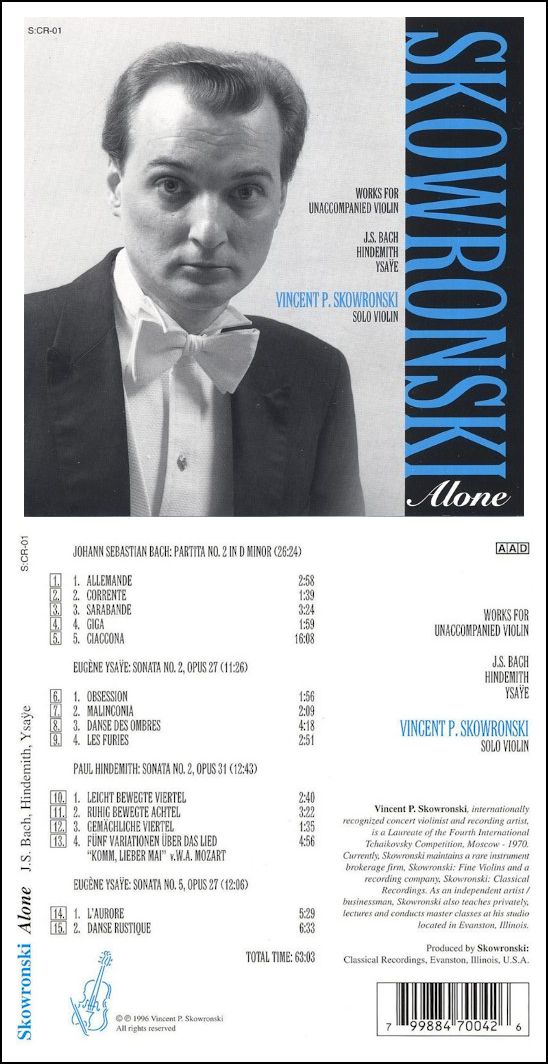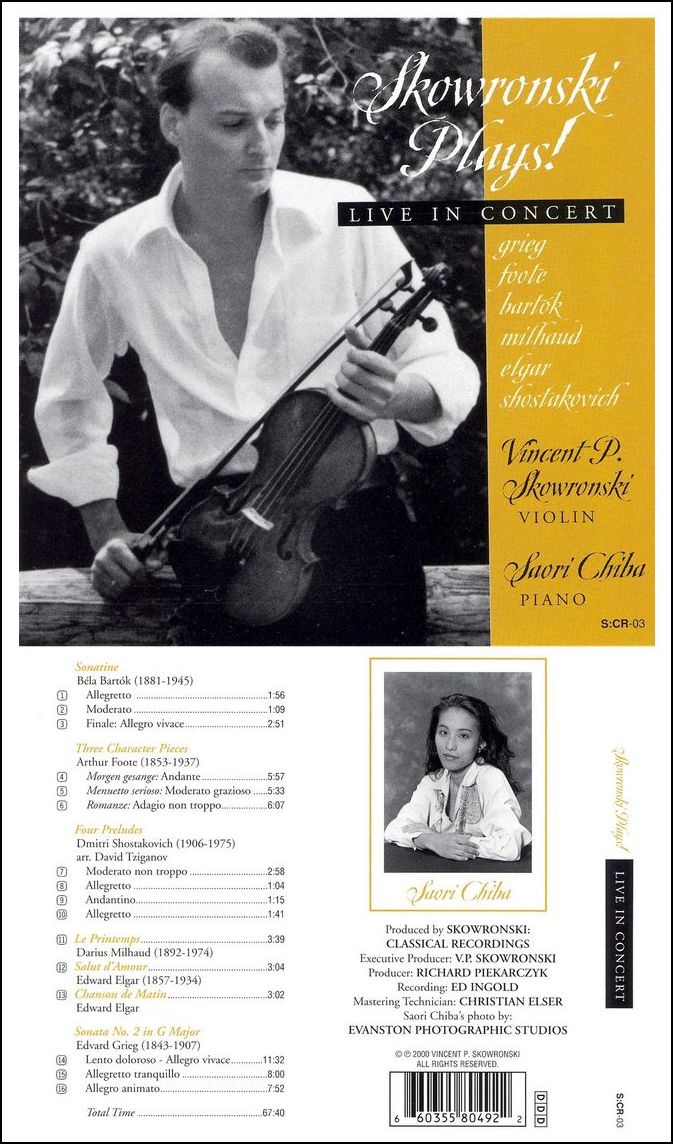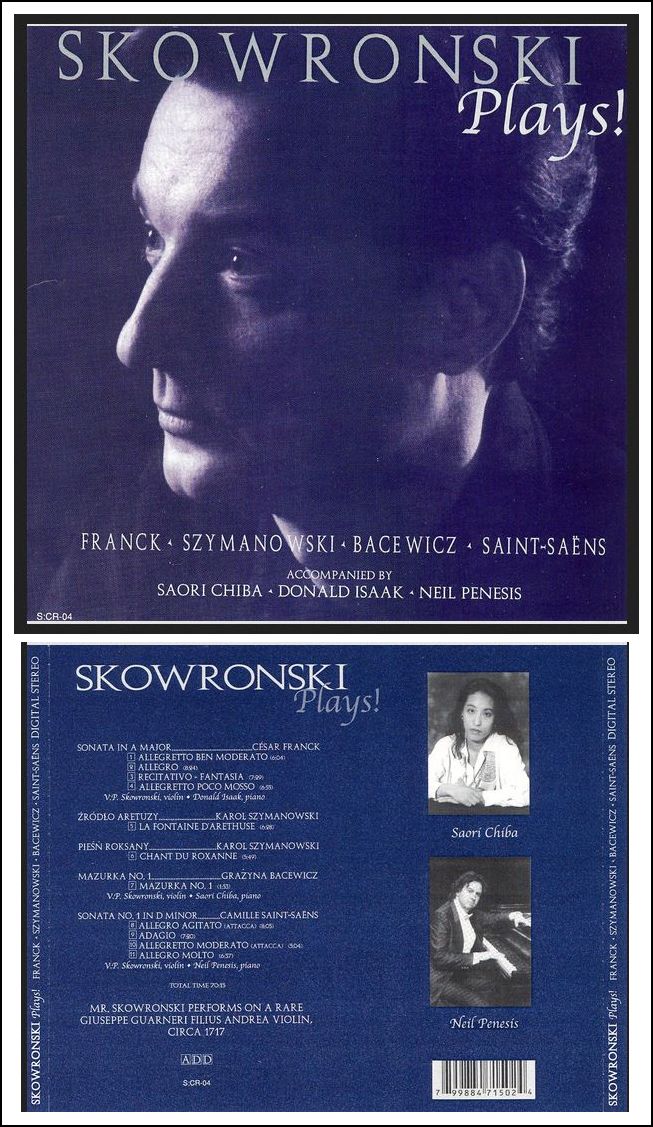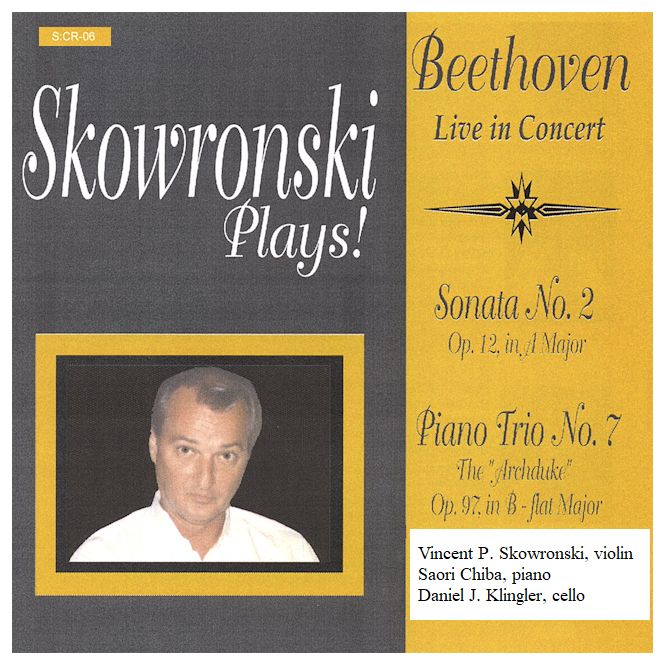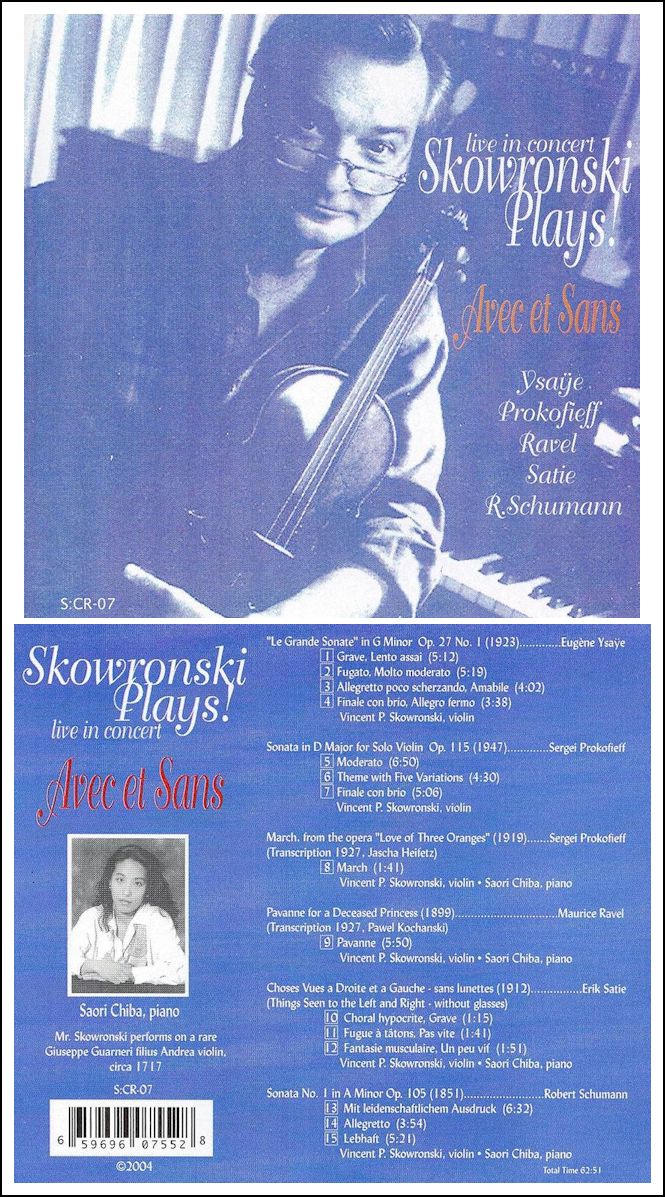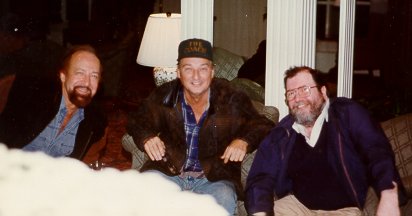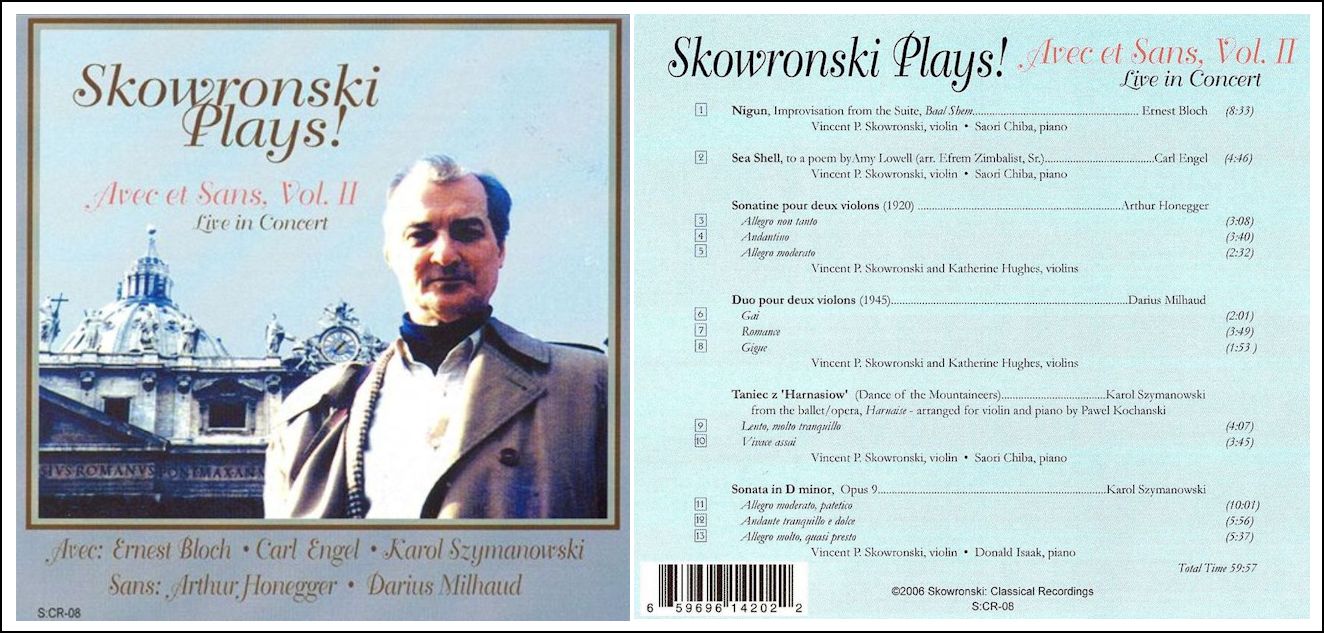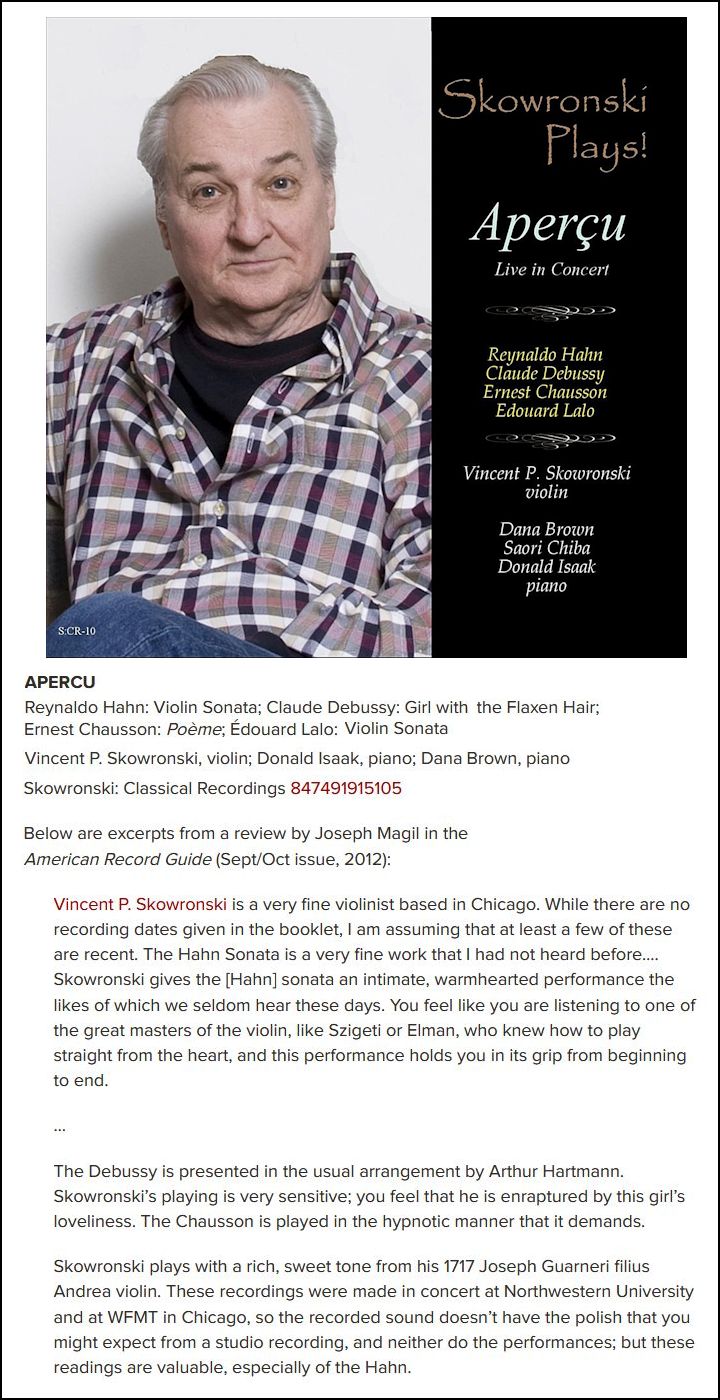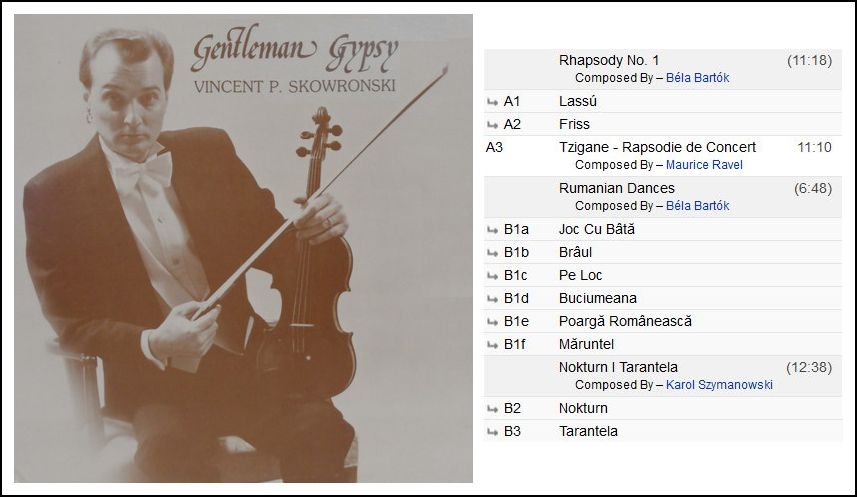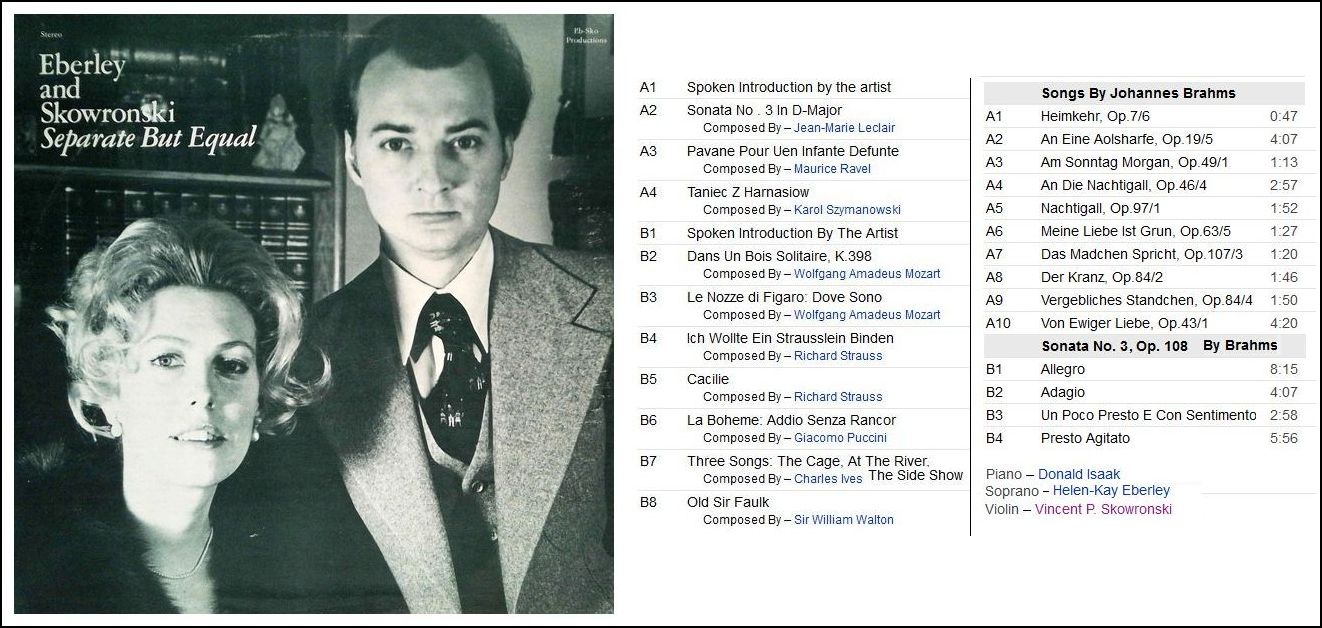Vincent P. Skowronski
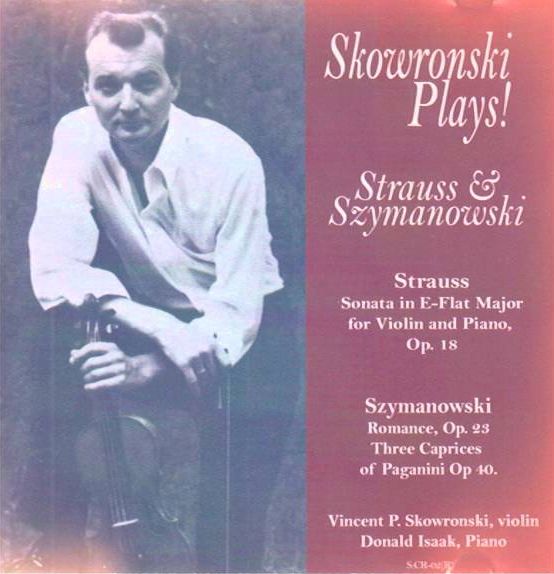
Violinist, recording artist and producer
Born Jan. 22, 1944, Kenosha (WI), U.S.
Education: Bachelor of Music, 1966, Master of Music, 1968, Northwestern University, Evanston (IL).
Career: instructor (violin), Northwestern University, 1969-71; assistant prof. (violin), University of Wyoming, Laramie, 1971-72; in Evanston - vice president, Eberley - Skowronski, Inc., intern, rare instruments broker, Strings & Things, 1973-92, intern, director of marketing and public relations, EB-SKO Productions, 1978-92, and Vincent Skowronski: Producer of Classical Recordings, 1993 -, media communications director, E-S Management, 1985-92; private violin teacher.
Author: solo violinist debut, Youth Orchestra of Greater Chicago, 1959; artist, producer, annotator: classical recordings, Separate But Equal, 1976, All Brahms, 1977, Gentleman Gypsy, 1978, Skowronski: Strauss and Szymanowski, 1979, Skowronski: One Sonata Each - Franck and Szymanowski, 1982, Skowronski Alone, 1993, and others; numerous solo concerts and recitals in Europe and Americas; numerous radio and TV appearances.
Member of: board of directors member, 1973-77, vice president, 1974-77, Youth Orchestra of Greater Chicago; mayor's foundation committee member, Evanston Arts Council, 1974-75; adjudicator, ice skating shows and competitions, Wilmette (IL), 1985-89; sponsor, Harvard Club of Chicago, 1989; International Platform Association.
Honors: Sigma Nu; Roy Harris scholarship, Inter - American University, San German (PR), 1960; award, American Federation of Musicians, 1961; scholarship, McCormick Foundation, 1965; laureate, IV International Tchaikovsky Competition, Moscow, Union of Soviet Socialist Republics (U.S.S.R.), 1970; Most Admired Man of the Decade, American Biographical Institute, 1992; listed in: Who's Who in America, 2000 Notable American Men, The International Directory of Distinguished Leadership, Personalities of the Americas, Men of Achievement, International Man of the Year 1992-93, Five Hundred Leaders of Influence.
Language: English.
Home: 1726 Sherman Avenue, Evanston, IL 60201.
(Text) From: "Who's Who in Polish America" 1st Edition 1996-1997,
Boleslaw Wierzbianski editor; Bicentennial Publishing Corporation, New
York, NY, 1996.
== Photo from another source
